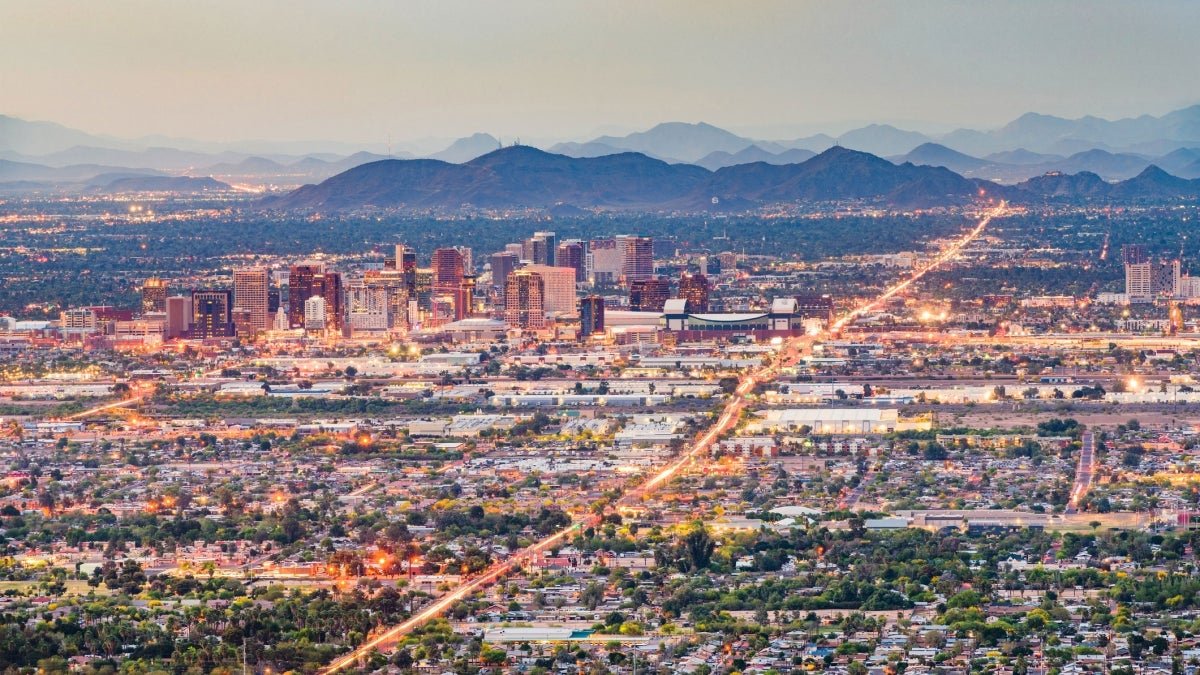Arizona State University today convened the inaugural meeting of the Council of Resilience Leaders, its latest effort to advance resilience-promoting strategies as communities in Arizona and around the world search for answers to complex issues from climate change to economic, health and social inequities.
The newly formed council comprises 14 influential and diverse leaders from the public, private, nonprofit and advocacy sectors. The group will work together to support ASU’s Knowledge Exchange for Resilience in its mission to leverage the university's intellectual resources and partners to build Maricopa County’s capacity to withstand future shocks and stresses.
“Arizona is experiencing rapid changes in the demand for health care and education, economic expansion, and social and environmental evolution, and as 2020 showed us, we can’t wait around for answers,” ASU President Michael Crow said. “Now more than ever, we need to work together as leaders to address the multifaceted challenges confronting our state and find better ways to ensure the overall well-being and prosperity of the communities we serve.”
The city of Phoenix, Maricopa Association of Governments, Salt River Project, Arizona Public Service, AARP, Greater Phoenix Leadership, Chicanos Por La Causa, Black Chamber of Arizona, Wildfire, Intertribal Council of Arizona, State of Black Arizona, Children’s Action Alliance, The Arizona Republic and the Hispanic Chamber of Commerce were among the organizations represented at today’s gathering at Mirabella at ASU in downtown Tempe.
The council is one of several resilience-building initiatives supporting the Knowledge Exchange for Resilience, which launched in 2018 with a $15 million grant from the Virginia G. Piper Charitable Trust. Other recent endeavors include the Resilience Fellows, who conduct individual and collaborative research on resilience themes, and the Recognition of Resilience, which honors local entities for their innovative and inspirational efforts to strengthen community resilience.
Additional information about the Knowledge Exchange for Resilience and the council’s membership is available at resilience.asu.edu/council-of-resilience-leaders.
ASU’s continued work to strengthen local resilience is another example of its ongoing, institutional commitment to take fundamental responsibility for the economic, social, cultural and overall health of the communities it serves.
Top photo by Sean Pavone/iStock
More Environment and sustainability

ASU researchers test environmental risks of tire emissions on Arizona highways
The Greater Phoenix area’s roadway grid system is the envy of urban planners everywhere, and the Arizona Department of Transportation, or ADOT, strives for nothing less than…

A 6-month road repair that only takes 10 days, at a fraction of the cost? It's reality, thanks to ASU concrete research
While Arizona’s infrastructure may be younger than its East Coast counterparts, the effects of aging in a desert climate have begun to take a toll on its roads, bridges and railways. Repairs and…

Mapping DNA of over 1 million species could lead to new medicines, other solutions to human problems
Valuable secrets await discovery in the DNA of Earth’s millions of species, most of them only sketchily understood. Waiting to be revealed in the diversity of life’s genetic material are targets for…


